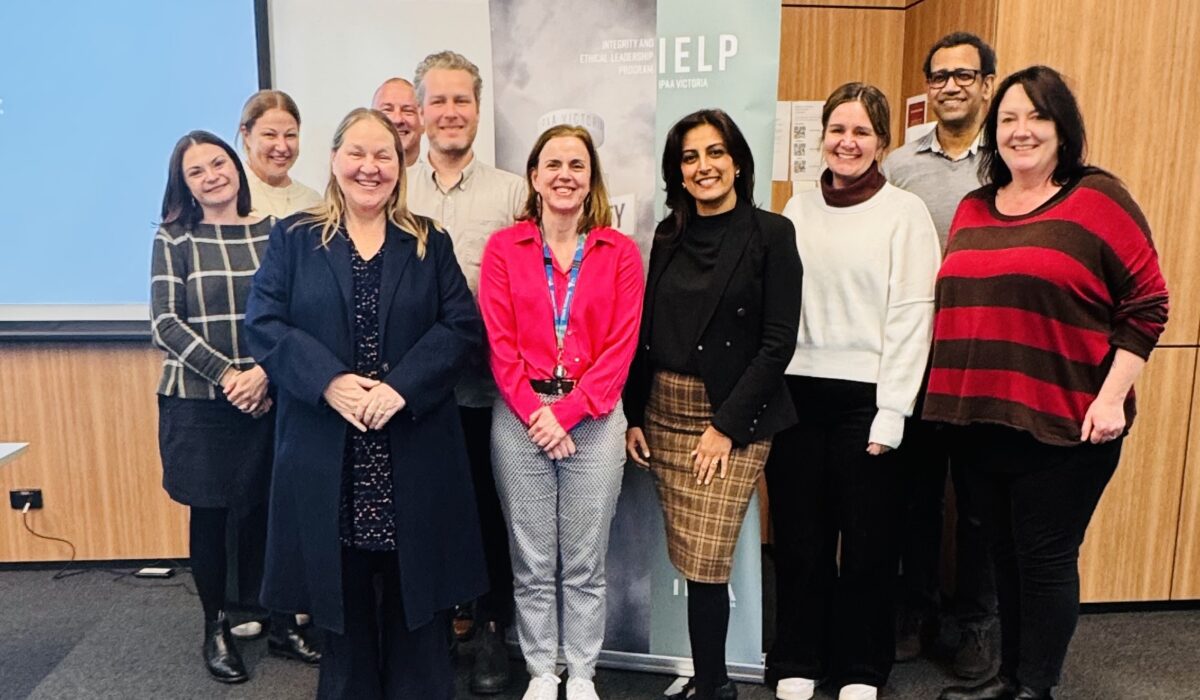
Celebrating the public purpose sector: Department of Justice and Community Safety
As part of IPAA Victoria’s campaign to celebrate the work of the public purpose sector here in Victoria, we are showcasing the skills and commitment of the people working in the Department of Justice and Community Safety.
To commemorate United Nations Public Service Day, IPAA Victoria has created a campaign to celebrate the work of the public purpose sector here in Victoria and showcase the diversity of skills, knowledge and expertise of the people working in the public service. In this instalment, we profile one of our Platinum Member organisations, the Department of Justice and Community Safety (DJCS), particularly their Landmate and Greyhound rescue initiatives.
Delivered in conjunction with another Platinum Member organisation, the Department of Environment, Land, Water and Planning (DELWP), Landmate is a highly successful program that has provided labour for environmental projects throughout regional Victoria for 25 years. Landmate crews consist of four to nine prisoners who are available to:
work on environmental projects on public lands, such as State and National Parks, roadside services and along Victoria’s waterways;
work for organisations that coordinate the use of funds from grant programs to enable landholders to undertake works on private land, which provide benefits to the public;
provide labour to organisations managing recovery works following natural disasters on public and private land.
Matthew Menhennet, Landmate Manager
“In 2021, prisoners at Hopkins Correctional Centre near Ararat built 12 fish habitats for the Victorian Fisheries Authority to revive the Maribyrnong River’s native fish population.”
Common types of work undertaken by prisoners are fencing, tree planting, watering and guarding, noxious weed control, vermin control, erosion reduction, general land reclamation, and even building fish habitats.
In 2021, prisoners at Hopkins Correctional Centre near Ararat built 12 fish habitats for the Victorian Fisheries Authority to revive the Maribyrnong River’s native fish population. The habitats were built to improve the environmental balance and health of Victorian waterways and are now home to more than 300,000 estuary perch.
Working on projects that provide meaningful and tangible benefits to the environment contributes to crew members’ rehabilitation efforts, helps to foster pride and assists in developing a more positive, community-minded mindset.
On outlining the benefits of the program, Prison Industries Business Manager Mick Hurkens said:
“The need for the prisoners to read, interpret and follow specifications included in the plans enhances their post-release employment opportunities, especially when it comes to the lean manufacturing techniques this project was based on – maximising productivity while reducing waste.”
To learn more about Landmate, and the people and projects who have benefited from it, watch the short videos provided by DJCS.
“The benefits extend to prisoners as rehabilitation and reintegration programs – such as Landmate and the Greyhound Adoption Program – play a vital role in providing prisoners with new skills to assist with their rehabilitation.”
For more than a decade, the Greyhound Adoption Program has been another avenue for prisoners to learn valuable skills and give back to the local community. This program is part of the Prison Pet Partnership between Corrections Victoria and Greyhound Racing Victoria.
Meet Boston, the 500th greyhound who completed the program at Tarrengower Prison, Victoria. Boston is an ex-racing dog who was trained by selected female prisoners to prepare for adoption into a new home. These have an interest in animal welfare and, over the four-week program, take responsibility for exercising, socialising and helping the dogs learn basic obedience skills and prepare them for a life of walking upstairs, walking on a lead and sitting on a couch.
“Working in the GAP team at Tarrengower has increased my communication skills and resilience. We all work together to achieve a common goal - retraining Greyhounds to be adopted in the wider community,” says *Janet, a prisoner at Tarrengower.
The benefits extend to prisoners as rehabilitation and reintegration programs – such as Landmate and the Greyhound Adoption Program – play a vital role in providing prisoners with new skills to assist with their rehabilitation and help reduce their risk of reoffending while also boosting self-esteem. These are just some of the ways that DJCS supports prisoners by giving them the best chance of being productive members of the community when they’re released.
The vision of DJCS is for a justice and community safety system that works together to build a safer, fairer and stronger Victoria. During the ever-evolving COVID-19 pandemic , DJCS has implemented significant legislative reforms and adapted to new ways of working to serve the Victorian community. These endeavours are underpinned by the professionalism, resilience and responsiveness of the public servants working in the department.




